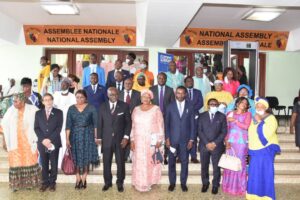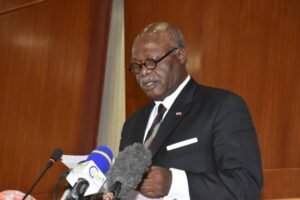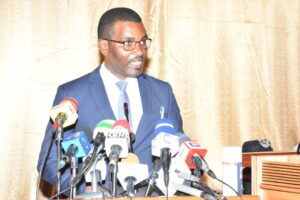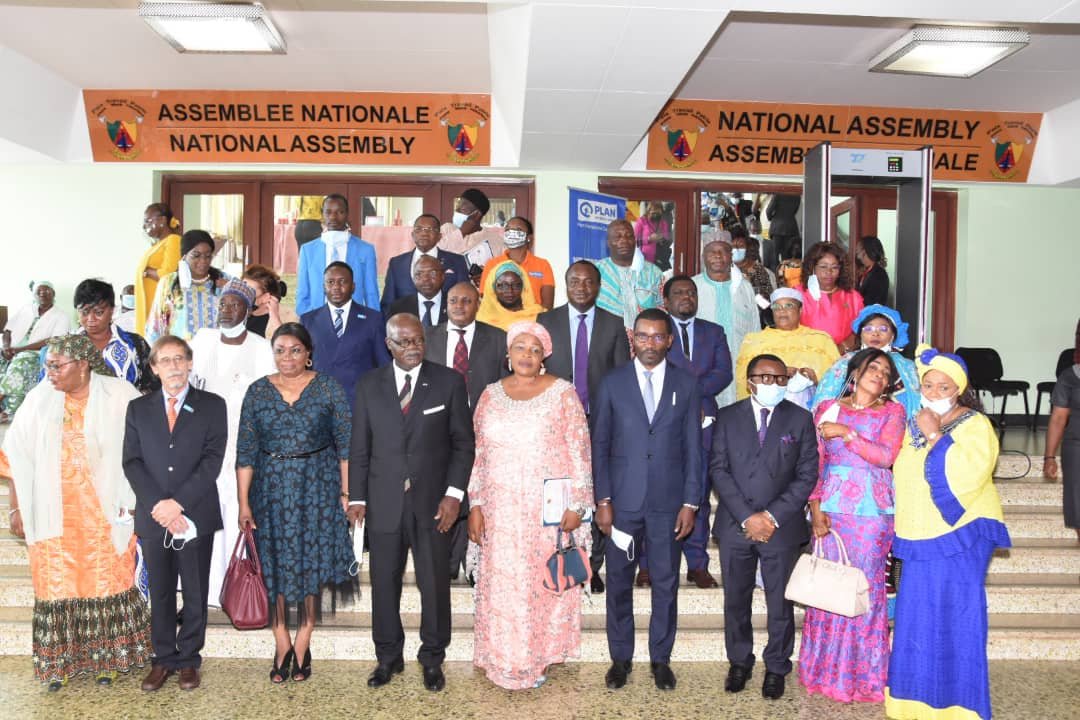
As part of activities marking celebrations of the 31st edition of the day of the African child in Cameroon, a plenary sitting was organized on June 16, 2021 in the house chamber of the national assembly in Yaounde.
The special session chaired by Honourable Hilarion Etong, senior deputy speaker of the national assembly was dedicated to an advocacy aimed at strengthening the legal framework for the protection of children against violence.
Honourable Hilarion Etong said the session acts as an ideal opportunity to once more grasp and understand how children are victims of violence, neglect and exploitation. It is a room for setting up a better framework that caters for children’s welfare and which is devoid of physical, psychological or mental violence.

In his address, the senior vice speaker outlined the fact that the day of the African child acts equally as a moment to urge Cameroonians to break the silence and report violence to which children are subjected to everyday.
He said: “We must break the silence and decry any amicable settlement initiated by adults to the detriment of the child whose rights have been grossly abused. We must break the silence and report cases of child exploitation for the benefit of adults and which are detrimental to the child’s welfare. Lastly, we must break the silence and report cases of neglected and abandoned children who are forced to work like adults when they still need to receive guidance from their parents.”
Taking part at this session, social affairs Minister, Pauline Irene Nguene said this year’s celebrations placed under the theme: “30 years after the adoption of the Charter: accelerate the implementation of Agenda 2040 for an Africa fit for children”, greatly reflects the will of African leaders to have, by 2040, a human capital capable of ensuring the relay of future generations. And the theme calls on States Parties to take necessary and urgent measures at national level to ensure compliance with the rights of the Child as she said.
Pauline Irene Nguene in her key note address equally stressed on results of the Multiple Indicator Cluster Survey (MICS) conducted in 2014.

“The percentage of children aged 1-4 years who experienced psychological aggression or corporal punishment in the month preceding the survey was 85%. The same source revealed that throughout their lifetime, an average of 80% of children have experienced psychological aggression and 45% severe corporal punishment (slaps or blows to the face, head or ears have been hit repeatedly). Furthermore, 47% of children aged 5-17 work, 11.4% of girls have been married before the age of 15, and 36% before the age of 18.” She said.
She quoted the Head of State who on the eve of the national youth day expressed concerns on growing insecurity amongst young people.
President Paul Biya on February 10, 2020 said: “I cannot conclude without mentioning a recent incident that has shocked our consciences: the murder, in Yaounde, of a young mathematics teacher by one of his students. This incredible act speaks volumes about the excesses of our modern societies. I call on parents, the clergy and teachers to prevent, through their teachings, such acts from happening again. I also urge you to reflect on what has happened, to ponder its gravity and to resolve to never again commit such acts”.
The patroness of social affairs in Cameroon indicates that institutional and operational measures have been taken by government to curb violence against children. Yet, more incentives are underway with the support of parliamentarians to address issues such as; children deprived from education by their parents, children found selling or loitering in streets, the rising phenomenon of sexual abuse and exploitation amongst children just to name these few.
Pauline Irene Nguene said: “Cameroon has a National Child Protection Policy Paper and an Early Childhood Development Policy Paper, supported by multi-sectoral action plans. As concerns the fight against violence against children itself, we have, among other things, drawn up a Handbook of Operational Procedures for prevention, care and reintegration of victims, reinforced by a Code of Conduct for actors and stakeholders.”
On his part, the Deputy country Director of Plan International Cameroon pointed-out the resurgence of crises affecting the Far-North and the two crippled regions of the North-West and South-West, where there is a massive influx of children refugees and those out of schools for the past 4 years.
The wave of insecurity and conflicts which touched Cameroon along the Lac Chad basin as well as reported cases of sexual abuse, rape, early and forced marriages of girls have been raised by Dr Sayang Collins of Plan International Cameroon.

While addressing MPs, government officials and other stakeholders present at the plenary sitting, the Deputy country Director said Plan International Cameroon has put in place humanitarian driven programmes in 8 regions of the country notably those affected by crises.
The plight of children notably the girl child remains a core priority for Plan International as he underscored.
He added that, access to quality education of 10.186 pupils notably 5477 girls and 4709 boys has been upgraded and amongst them were 1702 children refugees from the Central African Republic based in Bertoua, East region.
As underscored in the National Development Strategy 2020-2030, government intends to invest in human capital, so that excluded people of today become agents of production that the country needs. It is said: “The challenges for the next ten years is therefore to invest sufficiently and efficiently in the human development of young people so that the favourable future situation which will be that of a lower demographic dependency ratio coincides with a period when the economic dependency ratio is highest. To achieve this, the State undertakes to invest in the human capital of younger generations in order to make the most of the structure of its population which will be favourable to demographic dividend by 2030.
By Elise Kenimbeni





